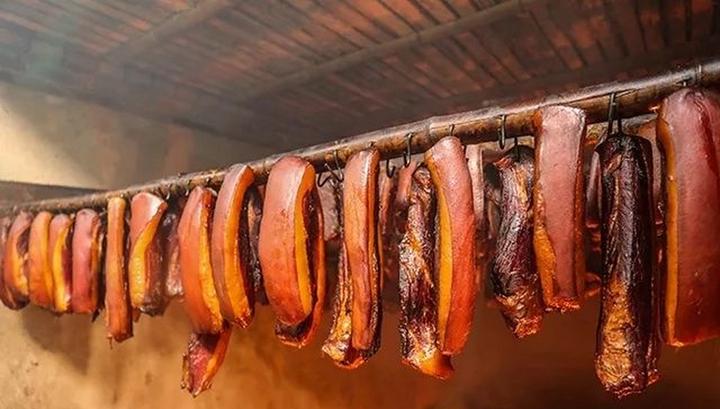The Controversy of Home-Made Bacon and Community Management in China
In Sichuan, China, a resident was fined 200 yuan for making bacon at home, sparking debate about community management authority and traditional food culture preservation. The fine was later refunded after public outcry.

The recent incident in Jinshi Community, Xixing Town of Guangan, Sichuan Province, China, has ignited a nationwide discussion about the intersection of tradition, law, and community governance. On December 24th, 2023, a resident was caught making bacon at his home, resulting in a controversial 200-yuan fine labeled as “bacon education management fee.”
The tradition of making homemade bacon, particularly in Sichuan Province, runs deep in Chinese culture. This preservation method has been passed down through generations, typically involving smoking meat with pine branches to create a distinct aroma and flavor that commercial products rarely match. For many families, it’s not merely about food preservation but a cultural ritual that marks the approach of Chinese New Year.
However, this cultural practice has increasingly come under scrutiny due to environmental concerns. Local authorities cite air pollution and fire safety as primary reasons for restricting home bacon-making. The Guangan city government had already announced plans to establish five centralized locations for environmentally-friendly bacon processing, attempting to balance tradition with modern urban management requirements.
The community’s response to the incident reveals several layers of governance issues. First, Chinese law clearly states that community committees, as grassroots self-governing organizations, lack the authority to impose fines. The “education management fee” appears to be a creative but legally questionable attempt to regulate resident behavior.
The incident also highlights a broader tension between urbanization and traditional practices in China. While the government promotes food safety and environmental protection, many residents view these regulations as overly restrictive and disconnected from cultural realities. The centralized bacon-making facilities, while seemingly a compromise, raise questions about costs and authenticity.
Perhaps most telling is the government’s swift response to public criticism. When the story gained national attention, local authorities promptly refunded the fine and disciplined the community workers involved. This reaction demonstrates the delicate balance Chinese officials must maintain between enforcing regulations and responding to public sentiment.
The incident raises important questions about how Chinese cities can modernize while preserving cultural traditions. It also underscores the need for clearer guidelines regarding community management powers and the protection of intangible cultural heritage in urban settings.